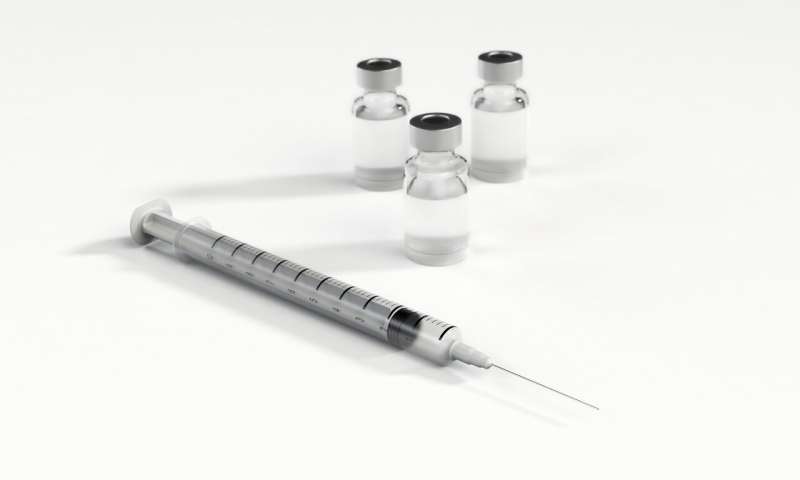Researchers develop a faster, stronger rabies vaccine

Every year, more than 59,000 people around the world die of rabies and there remains no cheap and easy vaccine regimen to prevent the disease in humans. Now, researchers report in PLOS Neglected Tropical Diseases that adding a specific immune molecule to a rabies vaccine can boost its efficacy.
Previous studies have suggested that the existing rabies vaccine—which is costly and complicated to administer—works by activating the immune system’s B cells. However it can take time for the vaccine, which contains inactivated virus particles, to interact with the B cells.
In the new work, James McGettigan of Thomas Jefferson University, and colleagues turned to a signaling protein known as B cell activating factor (BAFF), which binds directly to B cells. They designed a rabies vaccine which included an attenuated rabies virus and BAFF on the same particle, hoping to target the vaccine directly to B cells for activation. Then they tested the new vaccine in mice.
Mice immunized with the new BAFF-enhanced rabies vaccine showed a faster and stronger response of the immune system compared to animals that received the typical vaccine. Levels of virus neutralizing antibodies increased more quickly and to higher levels, however the duration of the response was not affected. Additional studies on the safety of the vaccine are needed before testing it in humans.
Source: Read Full Article


